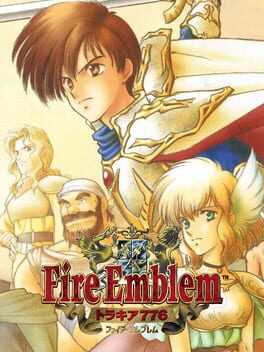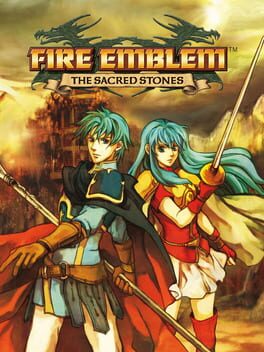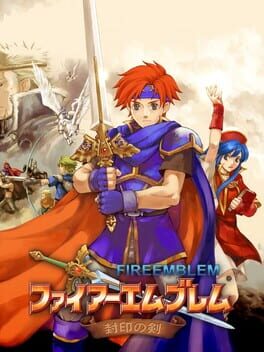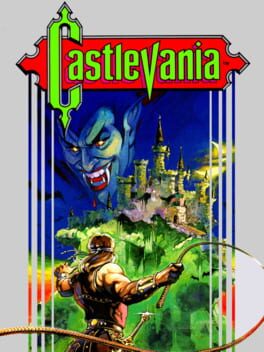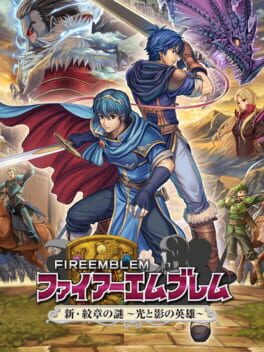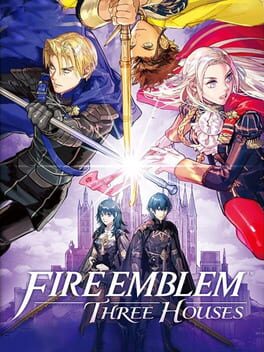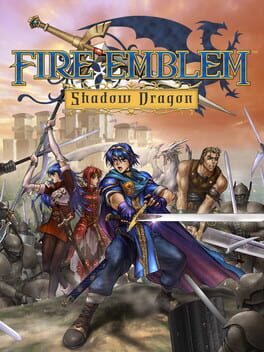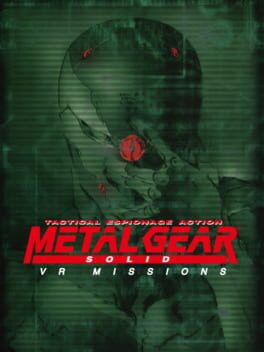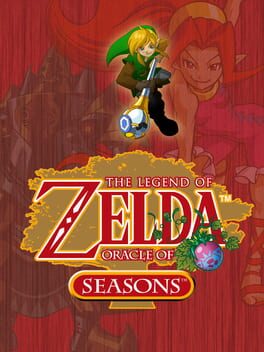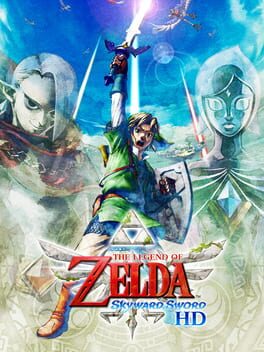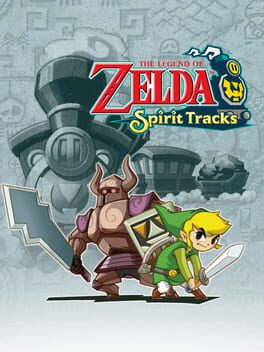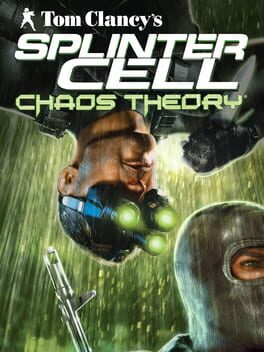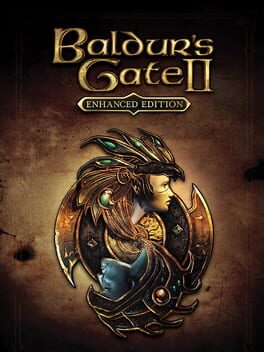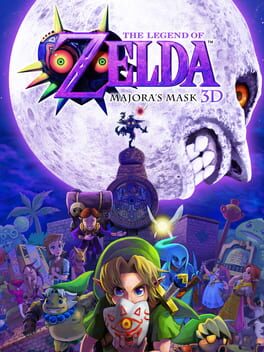Parallax_M
BACKER
This review contains spoilers
This is another one of those rare games that perfectly blends its themes and narrative with the experience of gameplay. Leif, the protagonist, is around 15 when this game takes place. Thracia 776 starts with Leif living in exile with a surrogate family of sorts, having been forced to flee his home by the pressure of an invading army. As the plot ramps up, Leif finds himself thrust into a leadership position where he has to command an impromptu army and lead them in a campaign to drive away the invading forces. The plot of Thracia is rather simple and on the whole isn’t terribly important. What is important, however, is Leif. Leif’s experience - being saddled with more responsibility than he could possibly imagine and being forced to cope with this new reality is rendered in a way that is pretty much unparalleled in the FE series in terms of depth and realism. Leif’s story is at once sad, poignant, inspiring, and life affirming, and Thracia 776 does an excellent job at getting the player to relate with and see themselves in Leif.
The gameplay perfectly compliments this narrative and it’s themes. It’s no secret that Thracia 776 is one of the most difficult FE games out there. You will often feel overwhelmed by the sheer amount of enemy soldiers and reinforcements to deal with. In Chapter 4 - which is one of my all time favorite levels in a videogame, you’re tasked with escaping an enemy prison and freeing the civilians imprisoned with you. As you do this, reinforcements appear from all sides to kill you, your comrades, and the escaping civilians. Once you manage to ensure the safety of the civilians - which is quite a challenge - you throw open the doors of the cell block thinking you’ll be able to make a clean break. When you do this, you’re met with a literal wall of armored guards. Now all you have to do is fight through them with your five under leveled and likely now injured party members. This is one of the most memorable “oh shit” moments I’ve ever had in gaming. This all sounds impossible, unfair, and frustrating, right? Wrong. One of the best things about Thracia 776 is that through all this struggle, against these seemingly insurmountable odds, victory is always possible with the right strategy even if this doesn’t seem to be the case. As you bang your head against the wall and reset the level you eventually will be able to get through those armored guards and escape. This experience is replicated several times throughout Thracia 776, and it is immensely satisfying every time.
Your journey as the player beautifully mirrors that of Leif. As Leif struggles facing units that far outnumber and outclass his own, so will you as the player. As Leif grows into his role as a leader you will grow into your role as a strategist. It’s one of the best underdog stories in gaming and Thracia’s design allows you to truly identify with the struggle and triumph of its protagonist.
This is a really special game and one that has stuck with me for years. While it isn’t a game that is particularly critical or one with something really unique to say, it is one that provides an unforgettable experience for the player. Despite having some very heavy themes and sad moments, Thracia is in many ways, a feel good story. It’s a story of inspiration and perseverance, of struggle and triumph, a story where intelligence, kindness, and grit are able to conquer any enemy. Most importantly, it’s also a story of hope. In our world, where our efforts are seldom rewarded and where hopefulness is often a fleeting and hard won state of mind, being able to actively participate in a story where struggle, and kindness, and hopefulness is rewarded can be very healing. One of the benefits of having a story like this in the medium of video games vs. film for instance is the ability for the player to identify with and actually feel the emotions of the protagonist via active participation. Being able to really feel emotions like triumph and hopefulness is honestly pretty rare. Some might balk at the idea of playing a videogame to experience these emotions, but isn’t that one of the most important functions of art - to make the person engaging with it feel something. Thracia 776 made me feel hopeful and triumphant, and that’s something that I think is very valuable.
I would recommend this game to anyone who is a fan of RPGs or strategy games. It can be challenging and daunting at first, but if you stick with it, I believe you’ll find it to be a rewarding and impactful experience.
The gameplay perfectly compliments this narrative and it’s themes. It’s no secret that Thracia 776 is one of the most difficult FE games out there. You will often feel overwhelmed by the sheer amount of enemy soldiers and reinforcements to deal with. In Chapter 4 - which is one of my all time favorite levels in a videogame, you’re tasked with escaping an enemy prison and freeing the civilians imprisoned with you. As you do this, reinforcements appear from all sides to kill you, your comrades, and the escaping civilians. Once you manage to ensure the safety of the civilians - which is quite a challenge - you throw open the doors of the cell block thinking you’ll be able to make a clean break. When you do this, you’re met with a literal wall of armored guards. Now all you have to do is fight through them with your five under leveled and likely now injured party members. This is one of the most memorable “oh shit” moments I’ve ever had in gaming. This all sounds impossible, unfair, and frustrating, right? Wrong. One of the best things about Thracia 776 is that through all this struggle, against these seemingly insurmountable odds, victory is always possible with the right strategy even if this doesn’t seem to be the case. As you bang your head against the wall and reset the level you eventually will be able to get through those armored guards and escape. This experience is replicated several times throughout Thracia 776, and it is immensely satisfying every time.
Your journey as the player beautifully mirrors that of Leif. As Leif struggles facing units that far outnumber and outclass his own, so will you as the player. As Leif grows into his role as a leader you will grow into your role as a strategist. It’s one of the best underdog stories in gaming and Thracia’s design allows you to truly identify with the struggle and triumph of its protagonist.
This is a really special game and one that has stuck with me for years. While it isn’t a game that is particularly critical or one with something really unique to say, it is one that provides an unforgettable experience for the player. Despite having some very heavy themes and sad moments, Thracia is in many ways, a feel good story. It’s a story of inspiration and perseverance, of struggle and triumph, a story where intelligence, kindness, and grit are able to conquer any enemy. Most importantly, it’s also a story of hope. In our world, where our efforts are seldom rewarded and where hopefulness is often a fleeting and hard won state of mind, being able to actively participate in a story where struggle, and kindness, and hopefulness is rewarded can be very healing. One of the benefits of having a story like this in the medium of video games vs. film for instance is the ability for the player to identify with and actually feel the emotions of the protagonist via active participation. Being able to really feel emotions like triumph and hopefulness is honestly pretty rare. Some might balk at the idea of playing a videogame to experience these emotions, but isn’t that one of the most important functions of art - to make the person engaging with it feel something. Thracia 776 made me feel hopeful and triumphant, and that’s something that I think is very valuable.
I would recommend this game to anyone who is a fan of RPGs or strategy games. It can be challenging and daunting at first, but if you stick with it, I believe you’ll find it to be a rewarding and impactful experience.
Probably 2nd best of the GBA games behind blazing blade. Gameplay almost identical to blazing blade but with addition of optional grinding dungeons and quite a bit easier on normal difficulty. Main story is okay and quite standard FE plot. Characters are enjoyable as is almost always the case. Very average and standars FE game. Still great if youre an FE fan but certainly not a series standout.
Very similar to the other GBA games and like them has great characters and a good story. It is however, the weakest of the three in this regard. Has some idiosyncratic gameplay mechanics which arent well explained. Getting the true ending is also quite confusing. Definitelt consult a guide if you want to get it. Roy being a rather weak unit, especially for an MC is a cool and memorable feature and fits well with the story and his character.
2013
1986
Strictly a platformer at this point as opposed to the metroidvania genre one of course thinks of with this series. Very difficult but not in an unfair way. Biggest criticism is that the game is too unforgiving for its difficulty level and requires too much replaying of old sections when you die. This is of course typical for an NES game but nevertheless brings it down in general. Soundtrack is great btw.
Pretty much identical to Shadow Dragon for DS when it comes to UI and gameplay. This game however adds a created player character as the secondary protagnist alongside Marth and also has a more robust support conversation mechanic for bonding with your troops. Story is sort of a retread of Shadow Dragon but about as engaging as that game’s story - which is to say good enough. Play this game for the characters and gameplay not the main story.
I may be in the minority about this but Dimitri’s route is the best route in this game and one of the best story arcs in the entire FE series. I’d say its tied for best with Genealogy and the Tellius games. Must play and highly recommend you do Dimitri first since its easy to run out of steam on successive playthroughs
Somewhat of an underrated entry IMO. Very memorable characters which serve as a foundation for the various character achetypes you’ll see in future games. Worth a play for this reason alone if youre an FE fan. Gameplay is good - I like the class change mechanic a lot. allows you to have more gameplay options and prevents the player from messing up their game by leveling the wrong characters. main story is decent but forgetable.
enjoyable and surprisingly expansive set of short challenge missions taking place in a VR landscape. all gameplay, no story. If you love the stealth gameplay of MGS you’ll like this but I cant imagine anyone, even mgs fans really loving this game. worth a shot if youre a fan of the series but if you cant get your hands on it, youre really not missing much
Incredibly underrated game especially when playing the switch remaster with various QoL improvements and button controls. One of the best if not the best story / Link and Zelda dynamics and definitely the best dungeons aesthetically. Puzzles and boss fights are also very strong and above average for the series. More linear than typical Zelda games but if you go in knowing that and dont mind something like that you’ll love this game.
Very mixed bag. Charming story and some very cute Link / Zelda moments. Improved upon PH in terms of dungeon puzzles and bosses which are often fantastic. While the game is at times great, there are things that make it very frustrating. There are an absurd amount microphone blowing mechanics (i dont think i have to explain to DS owners why this would be an issue. God forbid you try to play this on an emulator).
Quite a few otherwise very clever puzzles with phantom zelda also require finicky and annoying interaction with the DS touchscreen. I personally don't mind the stylus control scheme in PH and ST. It isnt ideal but it worked well enough in PH. The combat and movement mechanics in ST are generally more complex, however, especially in sections with Phantom Zelda. This increased complexity really reveals the flaws with the stylus control scheme. You will inevitably run into situations where you know exactly what to do but end up fumbling around with frustrating controls to do it.
Other than this the trains you ride for much of the game are very slow, and you lack means for convenient fast travel like the glyphs in PH. This wouldn't be a big issue if the train travel wasn't widely implemented but its an absolute core part of gameplay. You'll probably be spending 50% of your time in the game or more conducting your train - even more than this if you decide to do the side content, which is pretty much all transporting people and supplies in your train.
Overall this is a very charming and unique game with a lot of potential that gets bogged down by some pretty massive flaws. I would recommend that big Zelda fans play it for at least a couple hours to try it out. If you like it enough to keep going it can be an enjoyable experience. If you find it frustrating don't hesitate to put it down. There are far better Zelda games to spend your time on.
Quite a few otherwise very clever puzzles with phantom zelda also require finicky and annoying interaction with the DS touchscreen. I personally don't mind the stylus control scheme in PH and ST. It isnt ideal but it worked well enough in PH. The combat and movement mechanics in ST are generally more complex, however, especially in sections with Phantom Zelda. This increased complexity really reveals the flaws with the stylus control scheme. You will inevitably run into situations where you know exactly what to do but end up fumbling around with frustrating controls to do it.
Other than this the trains you ride for much of the game are very slow, and you lack means for convenient fast travel like the glyphs in PH. This wouldn't be a big issue if the train travel wasn't widely implemented but its an absolute core part of gameplay. You'll probably be spending 50% of your time in the game or more conducting your train - even more than this if you decide to do the side content, which is pretty much all transporting people and supplies in your train.
Overall this is a very charming and unique game with a lot of potential that gets bogged down by some pretty massive flaws. I would recommend that big Zelda fans play it for at least a couple hours to try it out. If you like it enough to keep going it can be an enjoyable experience. If you find it frustrating don't hesitate to put it down. There are far better Zelda games to spend your time on.
Easily one of the best stealth games of all time in terms of gameplay mechanics. Story is typical Tom Clancy fare, which I don't think many people feel too strongly about i.e. easy to like hard to love, but it is presented really well in this game. The same definitely cant be said about the previous two SC games where plot points tend to get rushed over and presented in ways that feel a bit clunky.
Back to the gameplay though because that really is the reason to play this game. Sam Fisher's moveset is expanded upon greatly in this game, giving the player even more infiltration methods to implement. The maps are also far more open ended than in the previous two games which is a very welcome change. In SC 1 and 2 it often felt like there was only one very specific way to progress through a evel. Much of the gameplay loop in those titles ended up being using trial and error to figure out exactly what the game wanted you to do. The gameplay in Chaos Theory is far more creative and gives the player room to react and adapt to changing situations on the fly. Detection in this game also feels much more balanced. I didn't experience any instances where I was spotted in a way that didn't make sense or that felt like a mistake on the game's part. This happened quite a lot in SC 1 and 2.My only major criticism of this game is sections where combat is heavily incentivized over stealth. While the gunplay in this game is serviceable it really pales in comparison to the stealth mechanics. There are parts where the game seemingly requires the player to engage in open combat, which can be a bit frustrating at times. These moments, however, are few and far between and don't do much to bring down an otherwise excellent game.
The concept for the Splinter Cell games is honestly pretty genius - down to earth and slow paced stealth games where the player feels capable but always vulnerable. This whole concept does such a good job at creating tension and making progression feel truly earned. There really aren't any stealth games quite like it. The first two Splinter Cell games are weighed down quite a lot by jank and various design choices that don't lend themselves to this overall concept. Playing them could sometimes be a frustrating experience because it really felt like they weren't living up to their potential. Chaos Theory does live up to that potential. It's a a near perfect execution of the Splinter Cell concept and stands as a testament to how brilliant that concept has always been.
Back to the gameplay though because that really is the reason to play this game. Sam Fisher's moveset is expanded upon greatly in this game, giving the player even more infiltration methods to implement. The maps are also far more open ended than in the previous two games which is a very welcome change. In SC 1 and 2 it often felt like there was only one very specific way to progress through a evel. Much of the gameplay loop in those titles ended up being using trial and error to figure out exactly what the game wanted you to do. The gameplay in Chaos Theory is far more creative and gives the player room to react and adapt to changing situations on the fly. Detection in this game also feels much more balanced. I didn't experience any instances where I was spotted in a way that didn't make sense or that felt like a mistake on the game's part. This happened quite a lot in SC 1 and 2.My only major criticism of this game is sections where combat is heavily incentivized over stealth. While the gunplay in this game is serviceable it really pales in comparison to the stealth mechanics. There are parts where the game seemingly requires the player to engage in open combat, which can be a bit frustrating at times. These moments, however, are few and far between and don't do much to bring down an otherwise excellent game.
The concept for the Splinter Cell games is honestly pretty genius - down to earth and slow paced stealth games where the player feels capable but always vulnerable. This whole concept does such a good job at creating tension and making progression feel truly earned. There really aren't any stealth games quite like it. The first two Splinter Cell games are weighed down quite a lot by jank and various design choices that don't lend themselves to this overall concept. Playing them could sometimes be a frustrating experience because it really felt like they weren't living up to their potential. Chaos Theory does live up to that potential. It's a a near perfect execution of the Splinter Cell concept and stands as a testament to how brilliant that concept has always been.
This game is a step up from BG1 in just about every way. One of the biggest improvements is in player choice and and having multiple ways to approach quests. This was something a bit lacking in BG1. Setting, writing, and pacing is also much better here with companion sidequests being a definite standout. Experience is definitely enhanced by playing BG1 but regardless would rec this game to any and all rpg fans.
In many ways, Majoras Mask and Ocarina of time are very similar games. From an aesthetic and design perspective they look and feel very similar. All the good things about the gameplay and design of Ocarina of Time are present in full force in Majora's Mask. The emotional experience that MM creates for the player however, could not be more different than that of Ocarina of TIme. Where Ocarina of time tends feel like a fun, relaxing, and balanced experience Majora's Mask often feels like a depressing and bewildering ordeal. This however, isn't neccessarily a bad thing. This is not a relaxing or pleasant game to beat, but it is a very rewarding one to beat. The harsh time limit, the often cryptic nature of side quests, the increased difficulty of dungeons and the dour tone of the game all work towards the common end of producing an experience where the player is meant to struggle and feel helpless. As a player, you're made to experience a lot of the same emotions that characters in the game are feeling. For people who can get past the unwelcoming nature of this game, this produces an intimate connection with the game world and a feeling of investment in your actions that not many games achieve. Most Zelda games aren't much more than very fun and engaging romps that sometimes have emotionally resonant stories that ground and enhance the experience. This is something very different. Majora's Mask is that rare and perfect melding of gameplay, story and characters where all work perfectly together to create something far greater than the sum of its parts. Games like this are often lightning in a bottle. It can be difficult to pin down exactly why it works so well in certain games and not in others, why some games have to settle for being merely great and why others can achieve a transcendent status for many players. Majora's Mask struck lightning for me, and I'm so glad it did.
